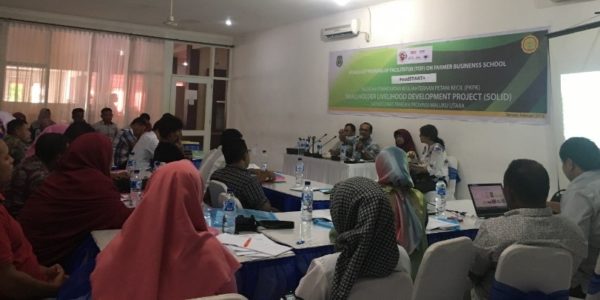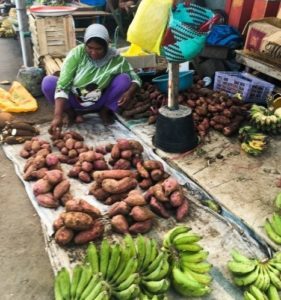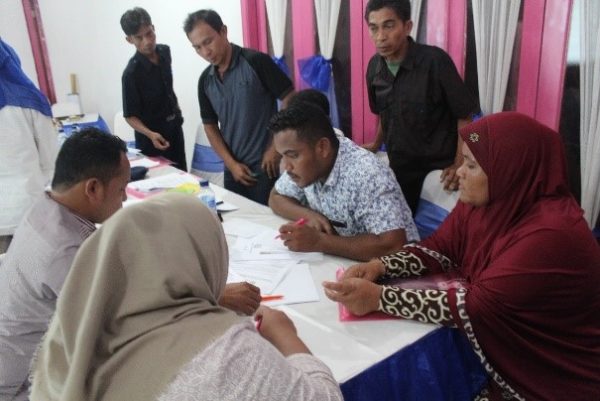The Food Resilience Through Root And Tuber Crops In Upland and Coastal Communities of The Asia-Pacific (FoodSTART+), and the Smallholder Livelihood Development Project (SOLID), both funded by the International Fund for Agricultural Development (IFAD), are collaborating to implement Farmer Business Schools in Maluku and Maluku Utara provinces of Indonesia. As the first step in this process, the projects jointly conducted a ‘Training of Facilitators on Farmer Business Schools with Gender and Climate Change Perspectives’ from 19-23 February 2018 in Ternate City, Maluku Utara Province, Indonesia.
The FoodSTART+ project is implemented by the International Potato Center (CIP) in collaboration with the International Center for Tropical Agriculture (CIAT), within the framework of the CGIAR Research Program on Roots, Tubers and Bananas (RTB). In order to take FoodSTART+ innovations to scale, CIP and CIAT partner with a number of IFAD large-scale development-oriented investment projects in Southeast Asia, including SOLID in Indonesia.
Funded by the European Union and IFAD, FoodSTART+ builds on the now-concluded FoodSTART project with the aim of promoting the role of root and tuber crops in reducing food vulnerability and enhancing resilience of poor male and female agricultural producers and consumers.
The Farmer Business Schools (FBS) approach is a participatory action learning process that involves farmer groups’ participation in agricultural value chains. The approach comprises a series of group-based experiential learning activities over a production-marketing cycle while interacting with other chain actors and stakeholders. First developed by CIP in Indonesia in 2008, it is currently being scaled out in the Philippines, Indonesia and India through FoodSTART+.

A panel discussion on business development services available for Farmer Business Schools. Photo: FoodSTART+
The training of facilitators was one of the initial steps for establishing FBS in SOLID project sites. The training aimed at building the capacity of SOLID staff, farmer leaders, extension agents and community leaders to implement FBS. There were 31 participants, including extension agents and farmer leaders at the village level, along with SOLID staff from district and province levels.

A woman sells roots, tubers and bananas at the market where participants collected data for a market assessment. Photo: FoodSTART+
The five-day training began with an opening speech from Ir. Syaiful Turuy, head of the Food Office of Maluku Utara province. In addition to lectures, panel discussions, and exercises, a market visit was also conducted for participants to practice market assessment.
The final session of the event included action planning by the two provinces for the implementation of the FBS process over the next eight months, culminating with the launch of a new business by each FBS group (five per province). After the training, key people from SOLID and FoodSTART+ met to agree on details of action plan implementation, on FoodSTART+ support to monitoring and mentoring of the process, and on the immediate next steps for the collaboration in the FBS sites in both Maluku and Maluku Utara provinces.
The FBS cycle is planned to start in March 2018 with a target business launch of the enterprises in October 2018. FoodSTART+ will provide the technical backstopping and monitoring-mentoring throughout the implementation of the Farmer Business School.
Blog contributed by Camille Joy Enalbes, Communication Specialist, FoodSTART+

